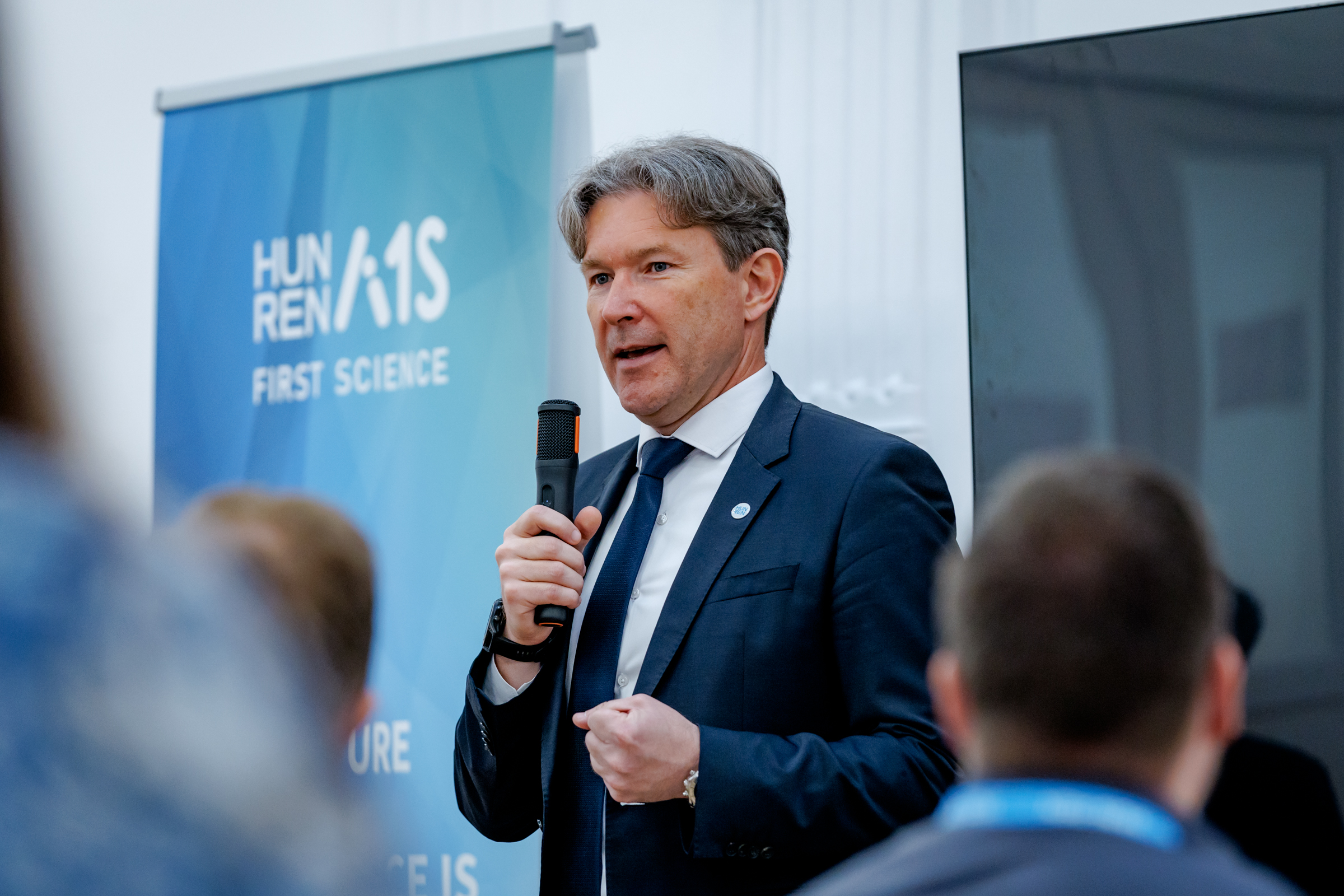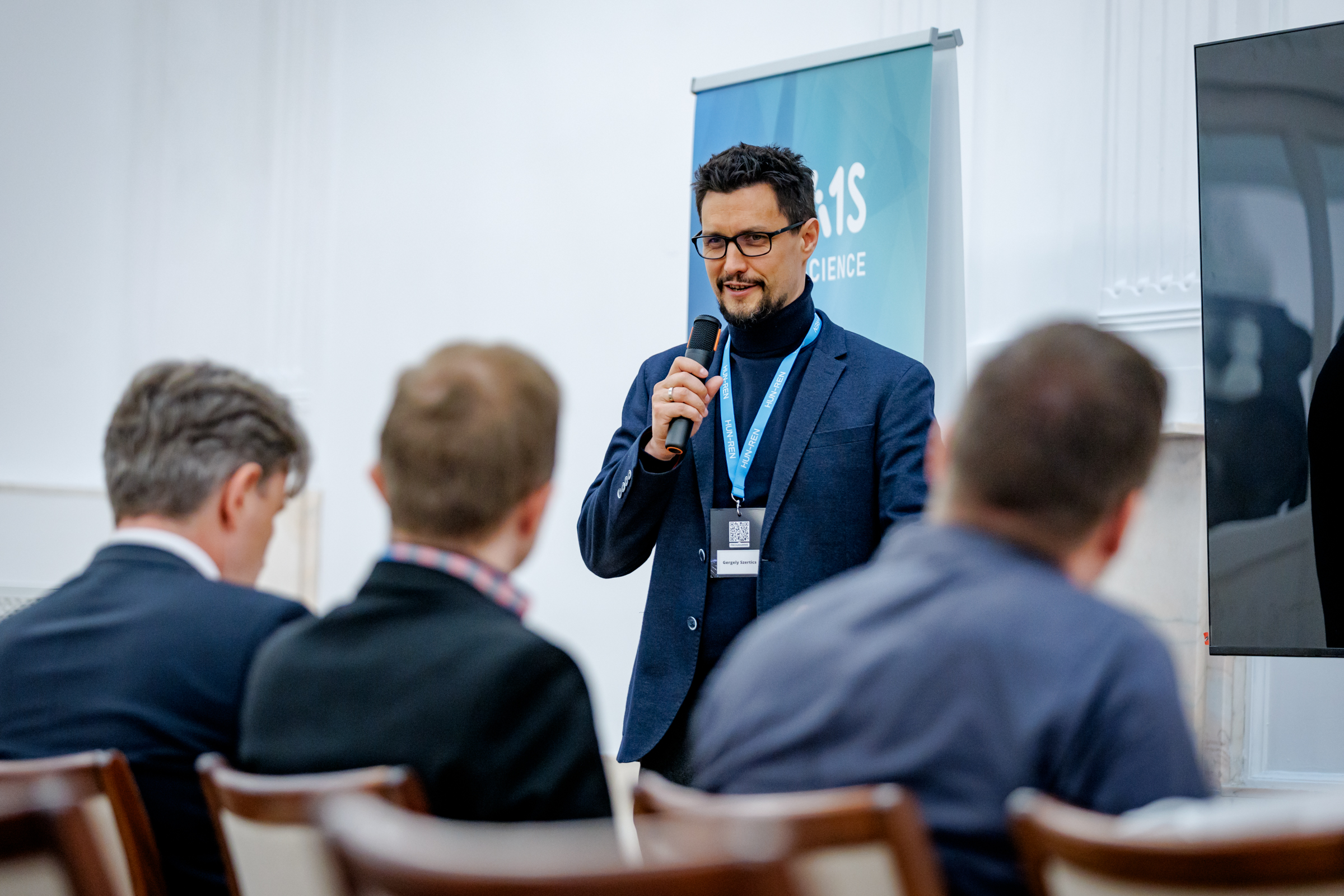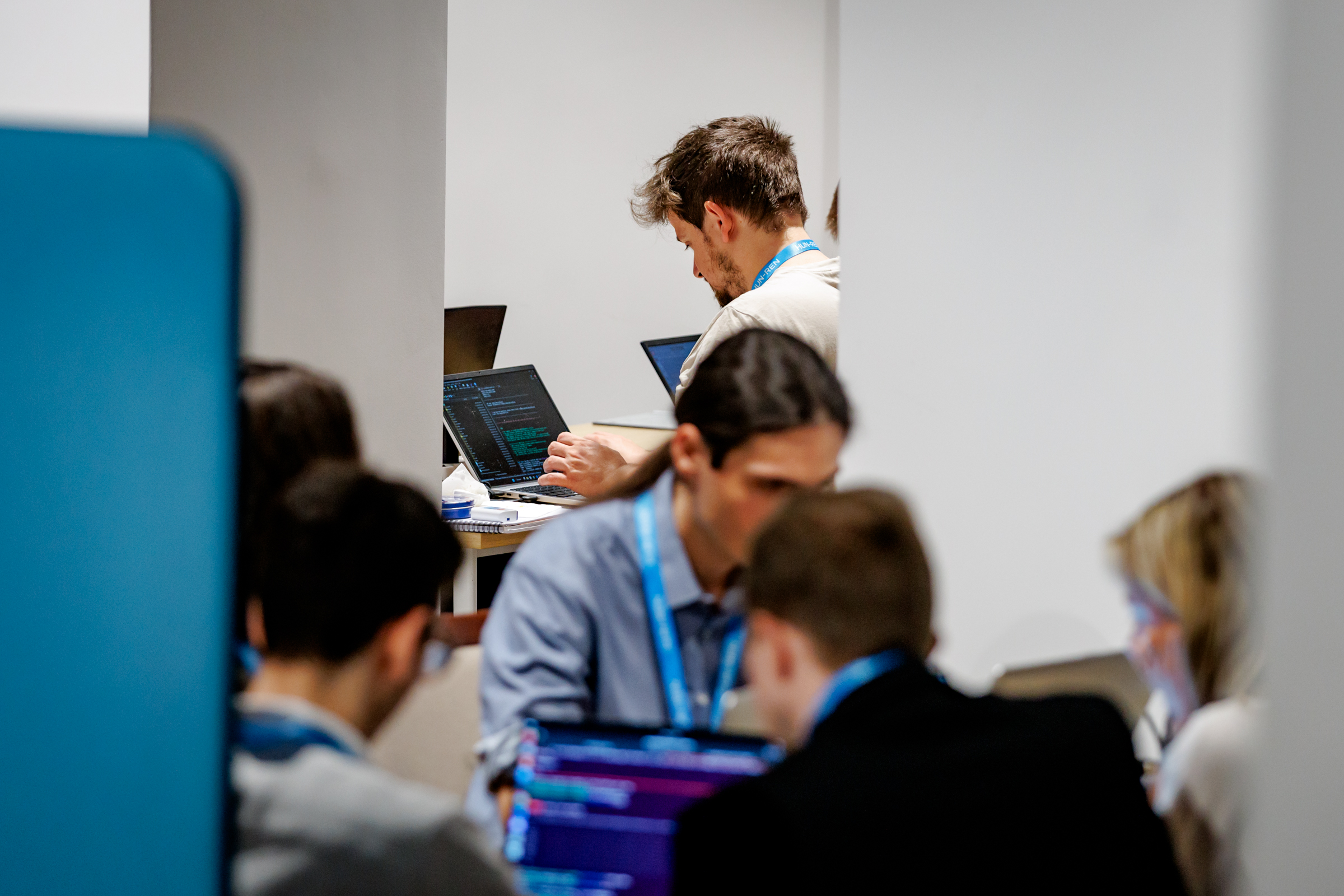AI Hackathon Win for Idea Supporting Scientific Discovery
A total of eight teams made up of researchers and AI specialists took part in the HUN-REN AI Hackathon, with first prize awarded to an idea aimed at solving scientific problems by identifying analogical solutions from entirely unrelated fields. The two-day competition, which attracted nearly fifty participants, marked the launch of HUN-REN’s themed month dedicated to artificial intelligence. From 8 to 10 May, some of the world’s foremost AI researchers will gather in Budapest for the AI Symposium 2025 to discuss the latest developments, trends, and breakthroughs in the field.
HUN-REN is launching May as the Month of Artificial Intelligence with one of the most significant scientific and innovation initiatives in the history of AI. The highlight of the month is AI Symposium 2025, taking place from 8 to 10 May at the Várkert Bazár in Budapest, bringing some of the most prominent figures in the field of artificial intelligence to Hungary for a three-day event. “We invited Nanyang Technological University (NTU) Singapore to co-organise this landmark AI event with us,” said Roland Jakab, CEO of HUN-REN, at the opening of the hackathon.

Photo: DKP Visual Kft.
“The science of the future will be supported by artificial intelligence, and HUN-REN will serve as the flagship of AI research in Hungary,” the head of the research network added. The aim of the programme was to bring together researchers from different scientific disciplines and AI experts to collaboratively design models that rethink the core methodologies of science using the tools of artificial intelligence.
During the two-day competition, participants worked in teams to develop ideas that were not only disruptive but also feasible. Each team was supported by both Hungarian and international mentors, including two solution architects from OpenAI. The company also provided technical support for the hackathon. At the close of the event, the teams—made up of researchers and AI experts—presented their results in 8-minute pitches, which were evaluated by a panel of four judges: Gergely Szertics, Head of the HUN-REN AI for Science (AI4S) programme; Dr Vanessa Camilleri, Senior Lecturer in Artificial Intelligence at the University of Malta; Professor Seyedali Mirjalili, Professor of Artificial Intelligence at Torrens University Australia; and Dr Gábor Kertész, Vice Dean at Óbuda University.

Photo: DKP Visual Kft.
First place went to the AutoDiscover project. The team began developing an agent-based AI system designed to help solve scientific problems by recommending methodologies from distant fields—enabling research to be supported more creatively and effectively through artificial intelligence.
The team that took second place came up with a decidedly bold idea: they proposed creating a simulated population of AI children, built from language models, to explore aspects of child behaviour.
The team that took third place developed an AI-based system capable of automating tasks in social science research—from generating ideas and writing narratives to designing and evaluating experiments.
Among the other ideas was a project aimed at recognising and classifying dog barks—for instance, to determine whether a dog encountered on the street might pose a danger. Another project sought to link Hungarian-language news articles with publicly available market data, enabling researchers to examine correlations between news content and market movements based on keywords.
Other teams worked on automating the monitoring of ground squirrel and mole rat populations using drone- and AI-assisted systems, or identifying bacteriophages using a new AI-based bioinformatics method to combat antibiotic-resistant bacteria. One idea focused on ensuring safe human–robot collaboration.
The top three teams have been invited to take part in the AI Symposium 2025, taking place at the Várkert Bazár from 8 to 10 May.

Photo: DKP Visual Kft.

